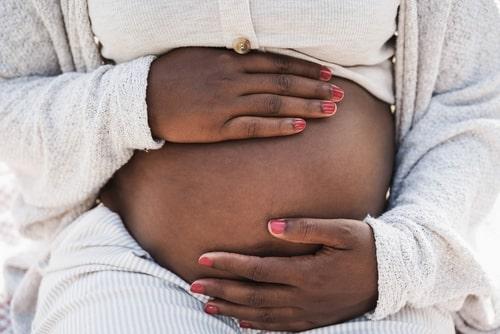Chicago, IL 60601
FREE CONSULTATIONS 312-462-4200
TOLL FREE 833-462-4200
Are Black Women in the U.S. More Likely to Die During Childbirth?
 The healthcare system in the United States is often considered to be among the best in the world. However, despite the quality of medical treatment provided to many patients, there are some areas where the system fails to prevent serious injuries or deaths. One of the most concerning issues involves the rate of maternal mortality. Women in the U.S. die during childbirth or within the first year after a child is born at a much higher rate than in other similar countries. Despite continuing advancements in medical science, the rate of maternal deaths has increased from year to year.
The healthcare system in the United States is often considered to be among the best in the world. However, despite the quality of medical treatment provided to many patients, there are some areas where the system fails to prevent serious injuries or deaths. One of the most concerning issues involves the rate of maternal mortality. Women in the U.S. die during childbirth or within the first year after a child is born at a much higher rate than in other similar countries. Despite continuing advancements in medical science, the rate of maternal deaths has increased from year to year.
Between 2018 and 2021, the rate of maternal deaths per 100,000 live births increased from 17.4 to 32.9. However, Black women are much more likely to die during childbirth than women of other races. In fact, the maternal mortality rate for Black women is around 2.6 times higher than that of white women, and in 2021, 69.9 Black mothers died for every 100,000 live births.
Why Are Maternal Mortality Rates So High for Black Mothers?
There are numerous reasons why Black women are more likely to die during pregnancy, delivery, or within the first year after the birth of a child. These include:
-
Insurance coverage - The United States does not guarantee healthcare coverage for its residents, and Black women are more likely to be uninsured. In many cases, mothers without insurance rely on Medicaid to finance the costs of medical treatment during pregnancy and childbirth. However, in many states, Medicaid only provides coverage during the first 60 days after a child's birth. More than half of maternal deaths occur between seven days and one year after childbirth. Without medical coverage, new mothers are unable to receive treatment for cardiovascular issues, diabetes, or other conditions that can occur after the birth of a child.
-
Doctor shortages - It has been estimated that by 2030, the demand for OB-GYNs will exceed the number of these doctors in the United States significantly, leaving many women without access to medical care during pregnancy, labor, delivery, and the post-partum period. This issue is more likely to affect Black women and other minorities who live in areas without access to birth centers, hospitals, or maternal care providers.
-
Social and environmental factors - Black women are more likely to experience issues that affect their overall health. Issues such as economic stability, access to education, and neighborhood safety can lead to increased levels of stress. Limited access to healthcare and nutritious foods can also result in poor health outcomes. Due to racial segregation, minority neighborhoods are more likely to be located near factories that generate pollution, which can increase the likelihood of preterm births and other issues that affect the health of Black mothers.
-
Racial biases - Stereotypes about Black women can affect their ability to receive the proper care and treatment. They are often considered to be excessively demanding, and medical professionals may fail to take them seriously when discussing their symptoms or medical issues. At the same time, Black women are often believed to have thicker skin and higher tolerances for pain, which may affect doctors' decisions about when to administer pain medicines or provide other forms of treatment during or after childbirth. This can result in Black mothers not receiving the treatment needed to prevent serious injuries or death.
Contact Our Illinois Maternal Birth Injury Lawyers
All mothers deserve to be treated equally and receive the proper care and treatment during pregnancy, childbirth, and beyond. Unfortunately, Black mothers are more likely to experience problems that could affect their health or even put them at risk of death. Here at Birth Injury Law Alliance, Ltd., we work to protect the rights of mothers and other family members who have been affected by birth injuries. We provide guidance to families on how to address injuries that took place during labor and delivery and deaths that occurred due to improper medical treatment. We can help family members understand the options that are available to them and the resources they can utilize to meet their ongoing needs. To learn how we can help in these situations, contact our Chicago birth injury attorneys at 312-462-4200 and schedule a free consultation.





